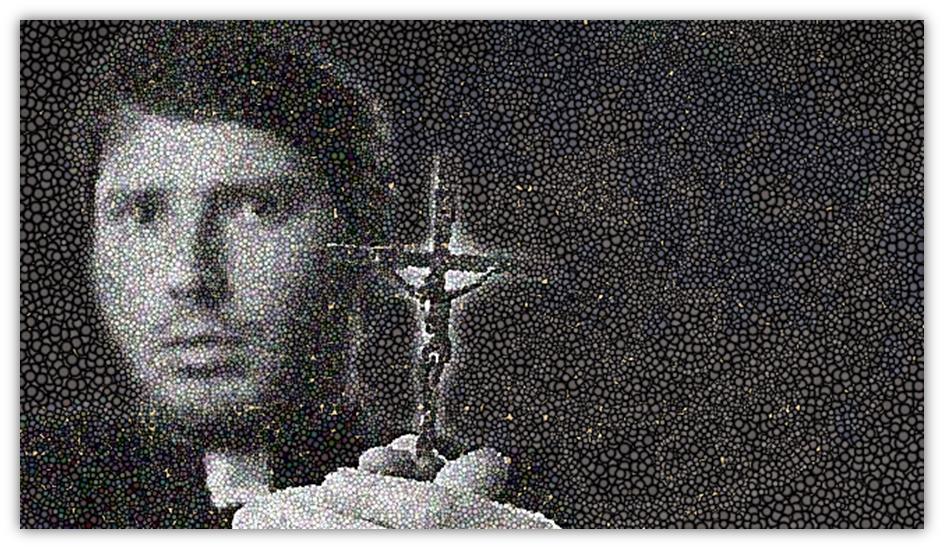Towards a Ministry of Exorcism?
Towards a Ministry of Exorcism?

For a long time, under the influence of modern science, there has been little interest in the world of evil spirits. The closed worldview of the natural sciences left no room for an invisible, spiritual reality. In the recent decades there has been a change. Movies, comic strips, and courses show that modern man as well wants to know again of a world of spirits behind and above what our eyes can see. The occult has made a comeback. Also in Christian circles role of the devil has gained more attention, especially through the well-known novels of Frank Peretti, The Present Darkness and Light through Darkness.
Not that long ago a collection with contributions from authors from Reformed circles was published, in which an attempt was made to give biblical answers to the influence of evil spirits and occult practices, and a ministry of exorcism was advocated. It is in connection with this collection that I want to point out some matters.
The Influence of the Devil⤒🔗
I appreciate that the authors stress the influence of evil spirits so much. The Lord warns his people specifically not to be involved in occult affairs (see Deut. 18:9–14). If it is all a load of eyewash anyway, then it is difficult to comprehend that warning. We may assume that in these occult practices evil spirits are active against which the Lord warns his people. It is remarkable that there is talk about the consulting of a “fortune-telling spirit” (verse 11). Israel should not consult evil spirits, but should listen to the prophet given by the Lord (verse 15).
The supernatural being (see 1 Sam. 26:13) that the witch of Endor sees coming up must also have been an evil spirit, pretending to be the old prophet Samuel.
That evil spirits can influence people becomes evident when we read that Satan urges David to take a census of Israel (1 Chron. 21:1), that an evil spirit struck terror into Saul (1 Sam. 16:14), and that a spirit of lies was sent to entice Ahab (1 Kings 22:22).
In the book of Daniel we meet the “prince of the kingdom of Persia” (Dan. 10:13). That indicates an evil spirit who apparently had the task to influence the Persian people in an unfavourable way against the Jews.
The extent to which demons can have power over people, we can hear especially in the New Testament. The Lord Jesus speaks about the “the power of the enemy,” which can do evil things (Luke 10:19), and about evil spirits that take over a person (Matt. 12:45). Paul convinces us that we have to wrestle not against people but against spiritual forces of evil in the heavenly places (Eph. 6:12). He speaks of the working of Satan with all power and false signs and wonders (2 Thess. 2:9). In Revelation 9 we read that John sees that the “shaft of the bottomless pit” was opened and evil spirits in the form of locusts with stabbing weapons like the stinging tails of scorpions were let loose on mankind. In Revelation 12 we hear that the devil with his angels has been thrown down to the earth. In Revelation 16 we see three unclean spirits like frogs going out to gather up the people for the great battle.
Precisely the last book of the Bible impresses on us the enormous activity of the devil and his henchmen. He has come to the people “in great wrath, because he knows his time is short” (Rev. 12:12).
Possession←⤒🔗
Especially in the New Testament we see that evil spirits can have power over people, where it tells about the healing of the demon-possessed. There we discover that there are gradations. The one spirit is more evil than the other (Matt. 12:45). Someone can be possessed by one evil spirit (Mark 1:23), but also in the clutch of seven evil spirits (Luke 8:2). Even a legion of demons can torment a man (Luke 8:30). We hear how evil spirits bring people to aggressive behaviour (Matt. 8:28) and bring them to life-threatening actions (Matt. 17:15)
Very remarkable is that particular disease symptoms are connected to the works of evil spirits. Thus we read about a woman who had “a disabling spirit” and was bound by Satan for eighteen years (Luke 13:11, 16), and about a “mute and deaf spirit” (Mark 9:25), about a demon-possessed man “who was blind and mute” (Matt. 12:22), and about an epileptic boy who was tormented by an evil spirit (Matt. 17:15, 18).
While focusing on diseases and ailments we have lost sight of the role of the devil. But in the New Testament we very clearly find the connection between disease and the evil spirits. In Luke 4:40 we read that “anyone who was sick and with various diseases” was brought to Christ, while in verse 41 it says “and demons came out of many.” In Acts 10:38 Peter summarized the work of Christ thus: ‘He went about doing good and healing all who were oppressed by the devil, for God was with him.”

It is not easy to map out how possession manifested itself. The victim was not always aggressive and dangerous (see Mark 1:23; Matt. 9:32). The fact that the scribes suggested Jesus has an unclean spirit (see Mark 3:30) proves that a possessed one did not always display pathological signs, as for instance the epileptic boy (see Matt. 17:15). Concerning the spirit-possessed ones we read about in the New Testament, many questions remain unanswered.
One thing is clear, though: we have to make a distinction between those who suffer because of an unclean spirit and those who are ruled by one or more evil spirits. The situation of the latter is characterized by the term demon possessed (daimonizestai; see Mark 1:32; Matt. 8:28), whereas for the state of the first ones the term afflicted by demons (enochleisthai; see Luke 6:18; Acts 5:16) is being used. The first verb indicates to be dominated by a demon, the second of being tortured by a demon. Demons can tease people with sickness and handicap, they can also occupy and control people (see Matt. 12:44, 45). When it is a matter of being controlled, we can speak of someone who is possessed or of possession.
There is still doubt about the question, why did being possessed so manifest itself especially in the time of Jesus’ appearance? It is not imaginary that this was connected with his appearance. In that appearance the kingdom of heaven was gaining ground. This may have led to an intensified offensive from hell. It is also conceivable that these possessed ones had to be subservient in order to show the power of Christ. Especially the victory over evil spirits might then have been the proof that he is the Stronger one, who robs the spoil from the evil one (see Luke 11:22), and that with him the kingdom has come (see Matt. 12:28).
Whatever the case, in each case Jesus shows in the casting out of demons and in his many healings that the devil with his henchmen has lost his position of power (see Luke 10:18), and that he liberates people from the power of the evil one—a power that can reveal itself in all kinds of sickness and disease.
Ministry of Exorcism←⤒🔗
It is time for me to focus on the collection mentioned before. I will concentrate on the essence of what has been brought forward.
The authors all agree that demonic possession is still possible at this point in time. In the collection there is no general agreement about the cause of this. Most often reference is made to the fact that people have involved themselves with occult practices, but some authors point out that there are curses which have been uttered by other people, curses that sometimes have struck the ancestors already. Some added to that: “When a Christian is in no way able to gain the victory over a particular sin in his life, though he strives for that, it may indicate a demonic influence on that area in his life.” Another author is careful: “From the history of one’s life there may be indications of ‘occult burdening.’”
Right away I wish to make a critical observation. The authors talk about an “occult burdening,” but do not explain what exactly we should understand by that. One can give “opportunity to the devil” (Eph. 4:27). One can allow him into one’s life. But does that lead to a condition that you can label: “occult burdened”? Where in Scripture does one read about such an occult burdening that even penetrates through the generations? Do curses have such a power? God’s curses have power. But where does Scripture teach us to fear the curses of people? To me it smacks of too much magical thought.
The same author makes clear that possession cannot be discovered via a medical diagnosis. He therefore writes: “The determining of a possession or demonic influence is a spiritual matter. Through the gift of the Holy Spirit, especially the gift of discerning of spirits, the presence of demons can be determined.” This opinion we find throughout the entire collection. It is the gift of the discernment of the spirits (see 1 Cor. 12:10) that today enables us to recognize the forms of possession.
It is a nice thought, but I do not believe it at all. Paul does not speak about this gift at all in connection with possession, but in connection with prophecy. The spirits of the prophets have to be tested (see 1 John 4:1). The gift of discernment of the spirits might save the congregation from false prophets.
The two last contributions plead for a “ministry of exorcism.” They recommend praying in group settings for people with demonic bonding. Directions are given how that can come into the practice of a local congregation, to “the service of exorcism.” Just introduce this from Scripture to the consistory and the congregation. Here prayer is indispensable. The prayer for enlightenment from the Holy Spirit, whether he will bring a possible binding to light. Also the prayer for the liberation of one in bondage. Jesus’ name should be mentioned in that prayer. The demons may even be ordered in the name of the Lord to leave. When Bible passages about sickness and liberation cannot be named, the diagnosis must be made that the congregation is sick, the authors say. Persistent teaching from Scripture is then the cure.

Mark 16:17, 18←⤒🔗
In the collection there is repeatedly the reference to the promise of Mark 16:17, 18 as proof that also nowadays evil spirits can be driven out in the name of Jesus. One forgets, though, that the Lord Jesus gave these promises of signs that will follow the believers within a specific framework. The apostles have to go into the world with the Gospel (verses 15 and 16). The “believers” the Saviour refers to are people who are themselves on their way. On their journey with the gospel the promised signs will follow them. The verses 15 and 17 deal with the signs that accompany the preachers during their advance of the gospel to the world.
Here there is not a promise that simply counts for all believers. We also should not forget that the preaching of the gospel in the whole world — the framework for the signs — is a matter that according to the New Testament is carried out in the time of the apostles (see Rom. 1:5; 16:26; Col. 1:23; 2 Tim. 4:17). This means that Mark 16:15–20 refers entirely to the apostolic era. The signs followed, as Acts tells us (Acts 5:12; 8:13; 9:34; 16:18).
It is remarkable that Paul, while mentioning the gifts (Rom. 12:6–8; 1 Cor. 12:8–11), does not speak about the exorcising of demons. It is similarly remarkable that the apostle is also silent about that when in Eph. 6 he deals extensively with the evil spirits. In the Pastoral Epistles too we do not read anything about the service of exorcism. James does know of elders who are called to a sickbed to pronounce a prayer and to anoint with oil in the name of the Lord, but does not make mention of the liberation from demonic bonds (James 5: 14, 15).
It is not by chance that we find the service of exorcism especially within the Pentecostals and Charismatic groups. That is connected on a deep level to the way in which they read Acts and texts like Mark 16:17, 18. I find it an omission that in the collection there is no comparison of their view with that which has been brought forward against it from Reformed circles.
We should not follow the path that the authors advocate. I can only see that here an unscriptural way has been pointed out.
Finally←⤒🔗
I expressed already my appreciation about the fact that the collection draws attention to the influence of evil spirits. Maybe demonism is somewhat neglected in our theological reflection. We have to deal with evil spirits. The New Testament warns us not to deny the influence of the devil and his cronies. It teaches us also how demonic powers try to get hold of people. As far as that is concerned, the Revelation to John should have more attention than it often has. We are not called to devil-exorcism in a ministry of liberation. James does call us to resist the devil (James 4:7). Paul teaches us how we can do that: “Put on the armor of God” (Eph. 6:11). He points out there the sword of the spirit, which is the Word of God, and prayer.
In a time of increasing demonic aggression (see Rev. 9; 12; 16) it is vital for Christians to be armed. There is then the encouragement, “I write to you, young men, because you are strong, and the Word of God abides in you, and you have overcome the evil one” (1 John 2:14).

Add new comment